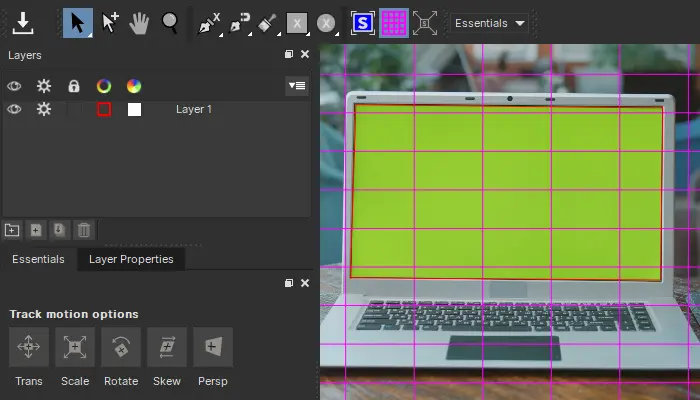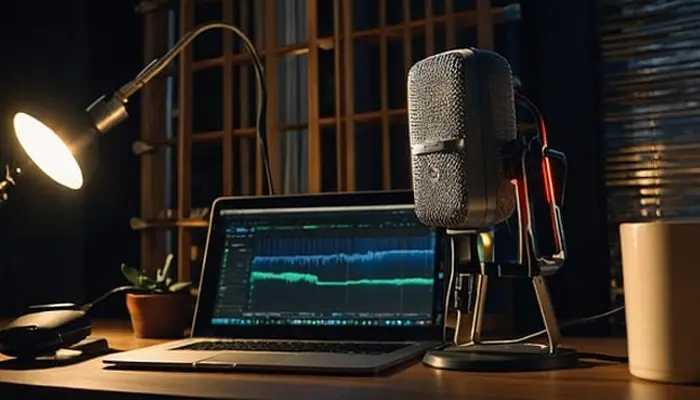Today on Art of the Cut, Oscar-winning film editor Lee Smith, ACE, on editing Sam Mendes’ Empire of Light.
Lee and I have spoken numerous times before, including on 1917, Dunkirk, and Spectre.
Lee was nominated for an Oscar for Master and Commander, nominated for another Oscar for The Dark Knight, nominated for an ACE Eddie and a BAFTA for Inception, and won an Oscar for Dunkirk. Other credits include Interstellar, X-Men: First Class, The Prestige, and Batman Begins.
Are you in Sydney (Australia), or where are you?Oscar Winner Lee Smith discusses editing Empire of Light
I am back in my home in Australia. I haven't been for two years, so that was a bit of a shock.
I bet. While we're talking about locations, this is a film — Empire of Light — that was shot in England. Were you on location, or were you editing in LA? Or both?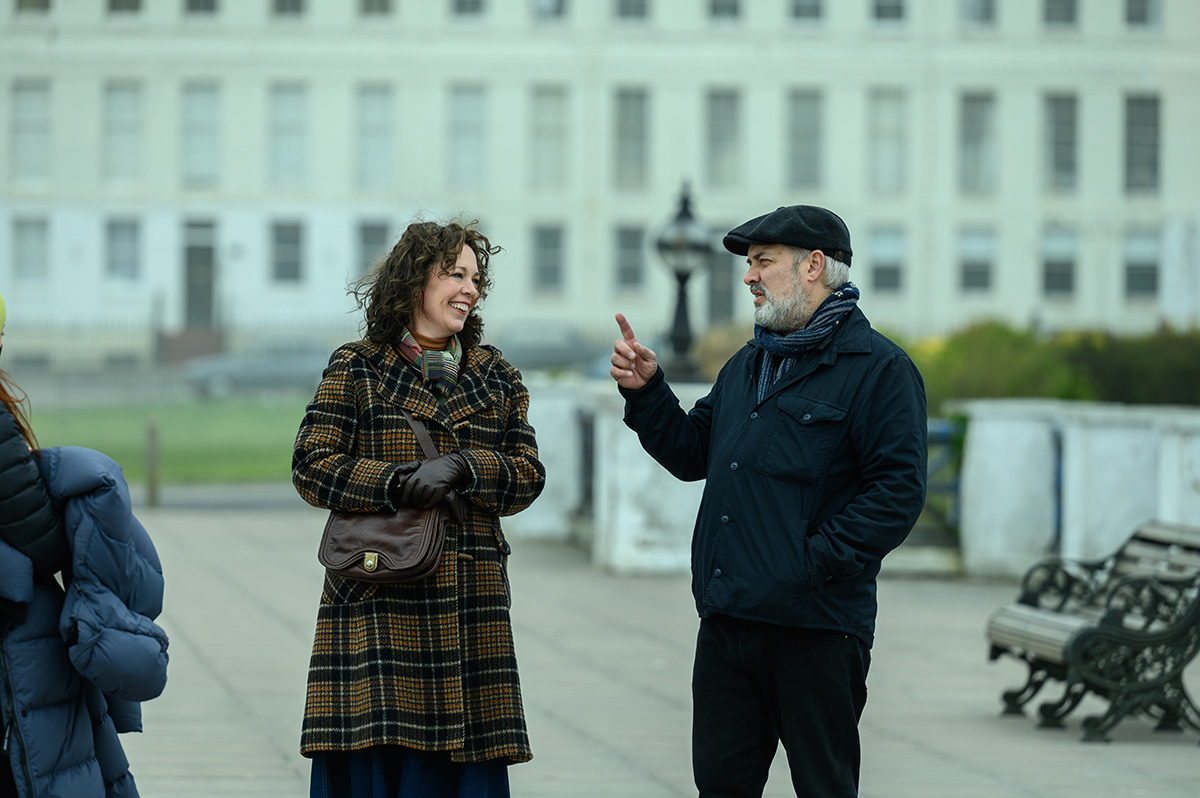
No, Sam wanted me in the UK. I was also cutting Argylle for Matthew Vaughn by remote. He wanted me to come over as well. So it all worked out. I ended up in LA, and then I handed Argylle over to Tom Harrison-Read, my other editor, whilst I did Empire of Light and then went back onto it for a month, leaving him now to finish it. So it was all good. Worked out well. It was a happy experience all around.
One of my favorite edits in the film is, “Well, Ruby will be here in a minute for your goodbye dinner.” (snaps fingers) Ruby appears. The smash cut basically directly to Ruby. I loved that.I got no time for nonsense. (laughter)
"Got no time for nonsense." That is it.It's a different pace for me: that film. I'm not used to working on films where you really do need to sit. There were a lot of static cameras which was interesting and refreshing to look at visually. I'm so used to a lot of frenetic coverage and pacing and everything else and working on that it was really pleasant to take your time. There was no rush.
It was a much smaller film than I'm used to working on as well, which was also pleasant. Kind of liberating, in a way. Very personal film for Sam, and great performances. Someone was asking me the other day about it, and I just said, “You know, you're spoiled for choice when you are working with that kind of talent. It's really pleasant.”
You mentioned that the pace is kind of deliberate. It's just lovely. But the last thing that you cut for Sam was just one edit, right? 1917? (wink wink)That was it. Man. "I don't even know...Why did they employ me?" I kept saying. (laughter)
(Laughter) "Just give me a check, and we'll run the thing from beginning to end, and I'll walk away."Yeah, that's true. But strangely, that one was far more pressurized. It was a bigger film. There was a lot at stake. I felt the responsibility of editing that was wildly acute. I was explaining to someone how every day, if you made a bad decision, you are literally screwed.
And if you don't pick up on a pacing, rhythm, or story problem, you are basically screwed. So the pressure was immense from day one of that film. Everyone was saying, "Oh, you’ll just be swatting around. It’ll be really easy.” It truly was not easy. There were moments where I'm wringing my hands, saying, “This isn't working, or that is not gonna join together.”
We had to reshoot twice. Two things had to be picked up the next day. And you've got, of course, a whole armada of people telling you, "Are you sure? Because that's a really expensive decision." And I'm saying, “Yeah, I'm sure.” And you're lying in bed at night, sweating, thinking, "Oh God?" (laughing)
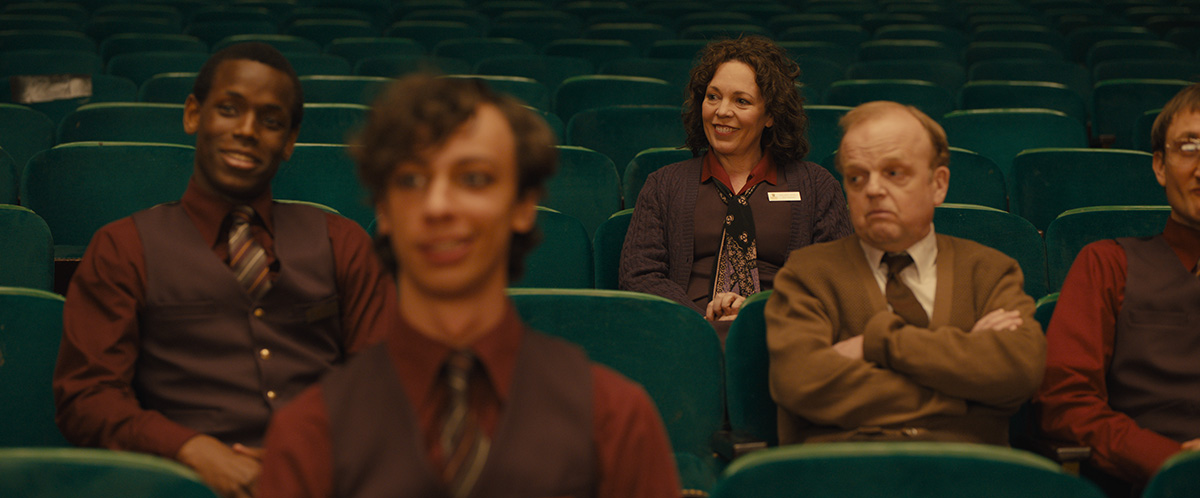
It really was unlike any other film I've ever worked on. You could really make a shit film doing that methodology, and as an editor, there's nowhere to hide. There are no cutaways. I could manipulate it to a point… and we did.
Eventually — maybe as I retire — I'll divulge all on how much I helped to manipulate it (both laughing) but still, under pain of death, won't say.
But Empire of Light could be tailored beautifully as a classic editorial thing. It was a bit of a throwback for me, working in a shorter shoot with less material, but you still have to craft a beautiful film. And that's what we did.
The scenes, to me, maintained great energy from the end of one to the beginning of the next. It seemed like you followed that screenwriting rule of “get in as late as you can and get out as early as you can.” Can you talk about making sure that energy maintains between scenes?I think the thing is: to try and get as much energy as you can, even on a film that professes to be relaxed. When we were test screening, you are acutely aware that if the audience — even for a moment — starts to get distracted. Our job is to make it entertaining and crisp and not repetitive.
A lot of those transitions are very acutely managed just for that reason. You always want to lean into the narrative and never get confused with what you're watching or feel any repetition. I was really pleased with the end result.
It's a sharply made film. Sam is very like-minded. He doesn't like the flabbiness. You watch other films that are in that kind of mode, I find that I get lagged with them. Or you're watching them thinking, “Okay. I've seen you walk into the same house. I've seen you do that. I've seen you do this. How many times can you walk off that spaceship? Wait a minute, that was a different film.” (laughing)
I won't go on, but you know what I mean. “Repetition is death,” as I love to say, and that film could easily have been very languid. It could have felt very long. We didn't want that.
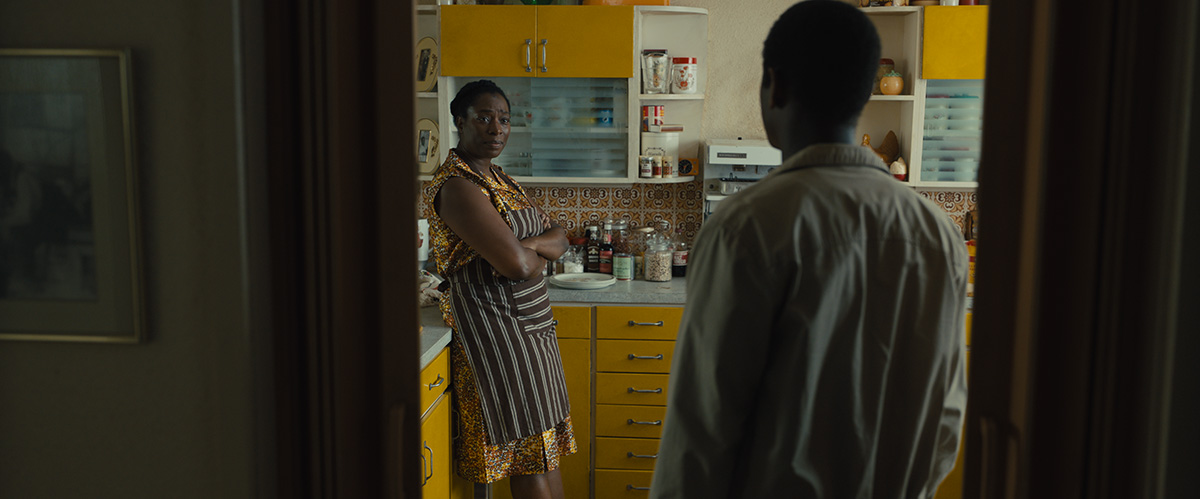
It's a really interesting point because we had many iterations of that walk home. There was quite a lot more to be had. It was as Sam said, “It's just sitting with the character and experiencing her loneliness.” And that was something that we tried to do profoundly.
At one point, we didn't have any music on that walk home, and it was longer. It was just the delicate sound. It was quite beautiful. But you realized we were pushing the limit of being able to sit with her because we didn't know her well enough to even understand that loneliness because it was at the top of the film.
And, that's just something in the post-production process where you continually watch the film and say, “You know, where it kind of worked, but also you're waiting for Stephen to arrive.” It's like that's the next jolt to get you going, and that's the reason that you're watching the film.
So, having Olivia walk through all of that cinema with the credit sequence, which was lovely, was enough. We didn't have to then take too much time. And you are a hundred percent correct: Why did we have her walk home at all? Why not just cut from her shutting the door to waking up in the morning? Again, it was trying to set up that loneliness that you could see the other people laughing, walking by, and that light New Year's/Christmas feeling, and she wasn't a part of it, you know?
I love that shot of the sole cracker, (laughing) eating Christmas dinner by yourself. Man... that was just brutal. I was watching it thinking, "Wow." But it used to be a very long panning shot that arrived on that profile of her eating the cracker. But it felt like you're watching an indie film, if you will…
A little indulgent.Yeah, a little indulgent. It had this very long panning shot. I actually cut that out before I even showed it to Sam. We were talking about it and I said, “It's a beautiful shot, but it just seems like… I mean, isn't this lonely enough?” (laughing)
(Laughing) "I did the whole walk thing."Yeah. You got the walk. Come on. But then, eventually, with Atticus' and Trent's music, we realized with a modern audience, you really did need to put music on that walk. It was a bridge too far.
So, we had a lovely time analyzing and thinking about all these issues. When we did screen it in America for a test audience, which is also tricky because it's a British film with British accents. It has that rhythm that you worry is gonna make the audience unhappy. But, honestly, that was one of the best test screenings I've ever been to.
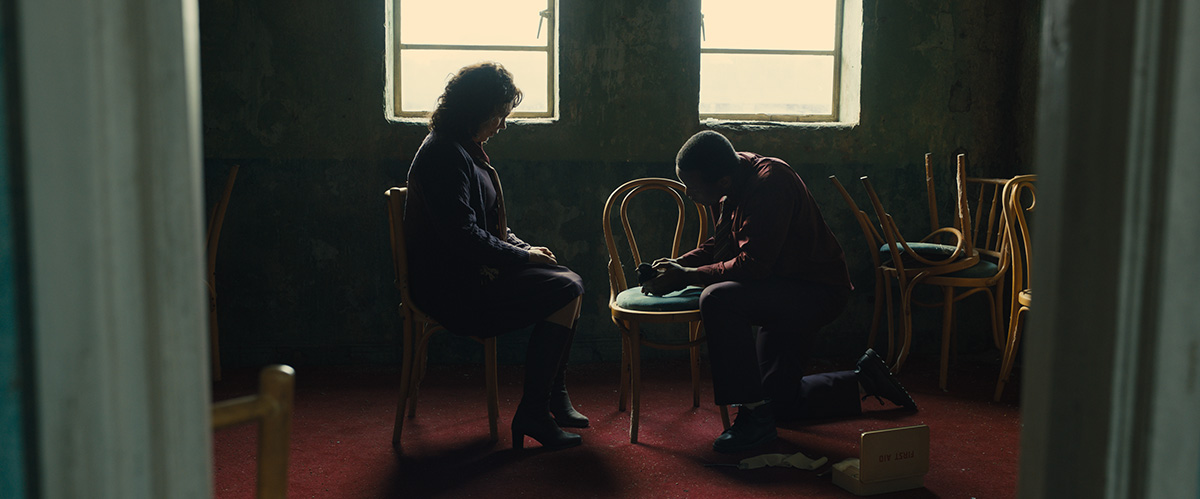
The interest and detail that they remembered in the focus group were fascinating. I was thinking, “Wow, you people really watched this movie.” (laughing). The recall of the minutia of detail was so cool to me and their engagement with Olivia. What we were worried about was the disparity of age and the fact that she had a relationship with a younger man.
But, because of the warmth of both of those characters, the genuine warmth, it wasn't a problem at all. They said, "Oh my God, we love Olivia, because her heart was always in the right place. She had issues, and he was such a well-brought-up young man. His heart was always in the right place. And, when he made the mistakes of youth. We all made those mistakes.”
I said to Sam, “It was like watching me growing up. There were moments when he did slightly dumb things and was embarrassed by them.” I thought, “God, I remember that.” That kind of stupidity of youth, but you’re brought up well enough to understand that you were wrong. He did understand that. Just really clever and great writing.
Yeah, I loved it. Sam wrote this?Yeah.
Any preciousness about the writing or cutting things out or...No, not at all. I think he kept his sense of humor when I said, “Who wrote this shit?” (laughing)
(Laughing) That takes some balls right there.I've used that line many times with him and Chris Nolan. Every time we're having trouble, I’d say, “Who the fuck wrote this shit, man? I mean, let's get the writer on the phone. Maybe he... oh wait, you wrote it? Okay. Explain it to me now…”
But in all seriousness, I think good director-writers understand if there's something that can make it better, they're all for it. And I think that is what makes a great filmmaker. If something comes up and it even doesn't matter where it comes from…if it's a great idea... Peter Weir once said, “If a courier was delivering something, as we're watching something, he says something that's interesting or valid,” he said, “I'll go with it.”
I remember a courier dropping off some film once to us. I think I was running something on the machine and he overheard it. It was just an aside. He said something and walked off. We both said, “Oh shit, I think he's right.”
It was just some offhand comment. I think we bumped it into folklore a little bit, but, I used to love the fact that Sam (and Peter particularly) used to stand around after screenings and right down to the apprentice give our impressions.
I asked Peter about it one time, and he said, “Well, I don't have to do anything that anybody says. It's interesting to hear it. What I don't want to hear is, ‘I don't like that.’” He said, “That's pointless because if you don't like something but you don't have a way of articulating what it is that you don't like or what it is that you should do about it, then you're not a filmmaker.”
Anybody can say, “I don't like it.” That doesn't take any talent at all. I can't blame you for saying you don't like it if you don't like it, then you're not part of the process. It's fine if you say you don't like something and here's what I think. Then it's a valid talking point.
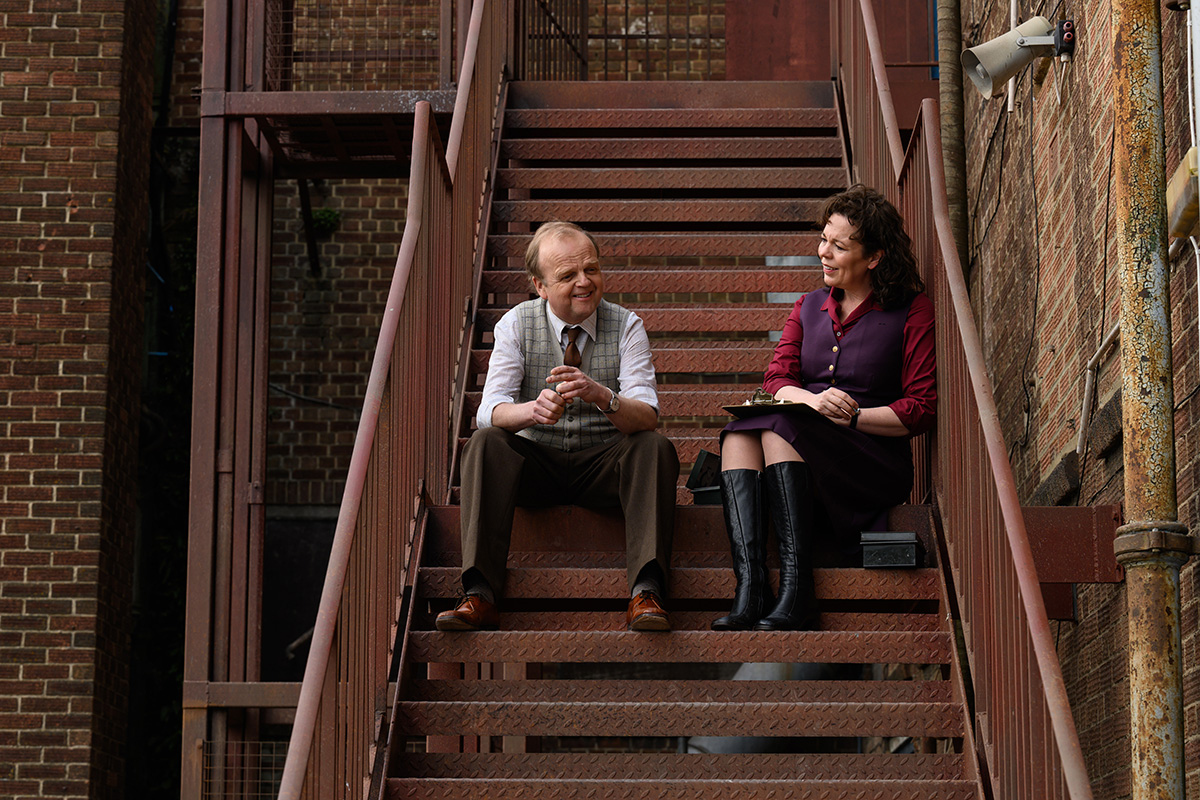
My classic one was a producer on a film I cut when I was quite young and said that this particular actress was very good, couldn't I put more of her in the film? And I said, “Every scene that she was in is in the film. So what did you have in mind?”
And they said, “Oh, I don't know. Have you got anything else?" I'm thinking to myself, "You guys greenlit the script. The script has been shot. What scenes am I missing here? I don't get it.”
Then you realize that that's just the voice of inexperience. Now, in my calmer old age, I just take it as if they really like her. They wish they had more of her. There’s nothing I can do about it. I can't waste thinking about it because what can you do?
One person talked about reshooting a film and recasting the lead of the movie.
(Laughing) Oh, geez.I don't even know how to respond to that. You can't recast the lead. They're in the entire movie.
To get back to this film, I always felt like I was in great hands with you and Sam, especially in dialogue scenes. I was acutely aware of always being on the right set-up at the right moment. Can you talk about those decisions of when to be on someone, when to be on the reaction? What is driving you other than just performance? Because, as you said, you've got a wealth of options. Everybody's always good all the time. So then what do you do?I always describe it as playing the piano or something (not that I can play the piano) but I think editing becomes second nature to me. I don't even think about what I'm doing, but I know what I want to be seeing. Once someone's talking, I’m thinking, “Is the reaction more profound than the statement? Or is the statement more profound than the reaction?”
What I advise a lot of younger editors is don't just cut for cutting sake. Have a good reason. Every single edit in the film should be made from a considered reason. I'm not saying you have to sit there and mull it over in your head for an age, but I have watched stuff that I've worked on where they just seem to be cutting because they're bored.
I don't know what the cuts are for. There's always a reason to be looking at something. On some of the films I've been asked to work on (brought in to film doctor), I've noticed that there's a whole load of information that exists in the film that I was unaware of because you're not on the character delivering the information. You are on what (the editor) considers to be the more important thing, which I consider to be the less important thing.
Then I'd rejigger it all and show the scene and to people watching it, it's as if they've never seen that scene before. Suddenly, that scene seems to work, but they weren't sure why it wasn't working. I’d tell them “because you weren't paying attention. It was cut in such a way that you literally didn't know what the scene was about.” And then when you reanalyze it and recut it, all these lines are there that are profoundly important, but they were played “off.” (The camera wasn’t on the person speaking.)
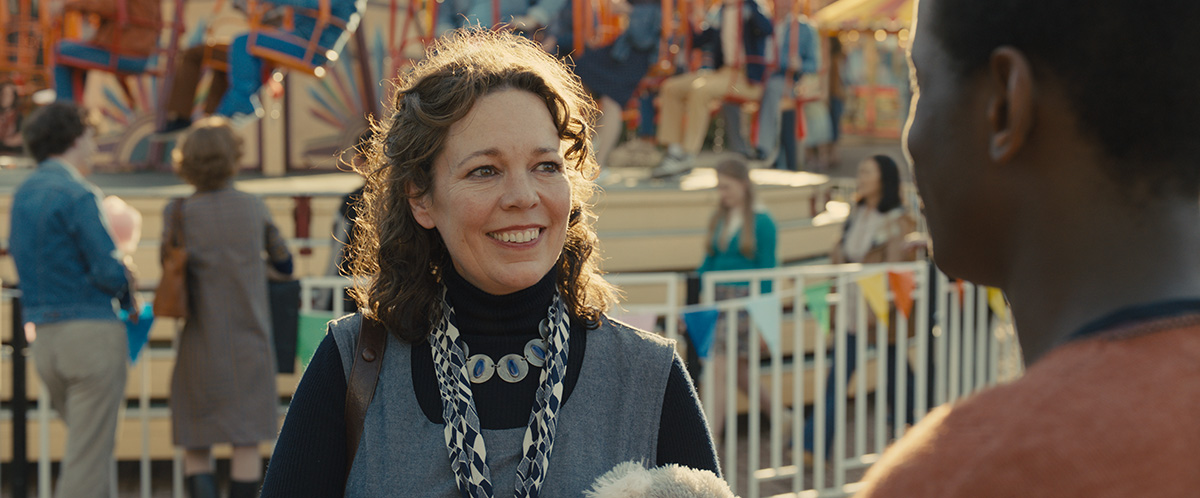
Stephen was explaining that he didn't get into college and he wants to get into college, and she says something very profound. She's talking to him, but she might as well be talking to herself. That's played on her. You could’ve easily played it on his reaction. But you played it on her because...
For exactly what you just said, she's almost talking to herself. That's the reason to stay on her. And, when we eventually cut to Stephen, it's a more profound cut.
There's another scene where Neil is talking to Stephen on the steps outside the cinema by the beach about Hillary, and I stayed completely looking at Stephen whilst Neil was talking, and part of that was just the beautiful composition of that frame.
I had all of the reverse coverage of Neil, but it never played in reverse, even though traditionally that's what you would've done. When I first put it together, I thought, “Oh, Sam's going to think I've lost my mind because I stayed in that shot all the way down until the very end.” It made the last lines super potent and allowed me to give the last look back onto Stephen.
But it was all about Stephen listening to Neil talking about Hillary, not about watching Neil talk about Hillary and not understanding what that meant to Stephen. So there was just no point in getting into cuts.
And if you don't play that line on the person speaking, a lot of times the audience is not carrying that important information on for the rest of the film or the rest of the scene.I almost think you could say that 50% of the line loses value when you play it “off,” so you want to have a good reason. You really want to know what if you are gonna play a line “off” it’s not just cutting for cutting’s sake.
I've done it myself where I look at a scene and think, “Oh my God. It just looks like we've lost confidence in what's being said.” Now, obviously, if you've got a lesser-quality actor who can't deliver those lines in a continuum... (laughing)
That's the beauty of having great actors, it's your choice. Whereas I have cut some scenes with, I would say, well-known yet atrociously poor acting, and you just can't stay on them because you can tell they don't know what the hell they're saying. The light goes off in their eyes. They're just basically parroting lines, so I think, “I can't stay on them because it's driving me nuts.” That doesn't happen that often.
Not for you… (laughing)No, no, no, no. That's... yeah. Thank you. Thank you, Lord. (laughing)
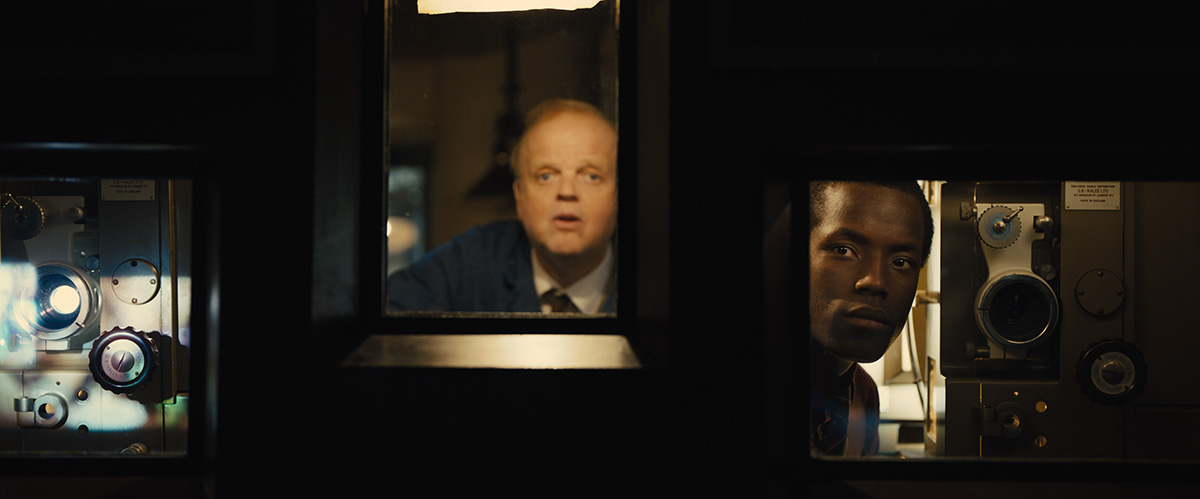
That was a heavily thought-about executed scene. But again, it was because they're so fucking good, both of them. It was quite challenging to figure that scene out because Toby has such a heart-wrenching story about he had a son and everything. Sam wrote it so he gets distracted, which was all so wildly awkward, but it was supposed to be where she says, "What happened?" And he says, “What?” (laughing)
It's like he's off in his own cigarette-smoking world. So, yeah, picking the exact moments to cut to Olivia for her reactions and her, again, being spurred on to go and see Stephen back at the hospital. It’s funny you mentioned that scene. It was an incredibly delicate scene and it took a while to get just the right feeling. So, when you cut to Olivia, walking through her empty house and then going to the hospital, you understood that everything Toby said moved her to go back and try again with Stephen.
Another great scene with very few edits is where she gets a record from Stephen and she dances in her apartment. It starts on the record player with her dancing in the background. Then there's a wide shot with her dancing and then I love the shot of her feet on the floor where you see the floorboards bending.That was another interestingly tricky scene and there wasn’t a lot of coverage on that, so there was no way of manipulating it that much. But, I had to manipulate it because she was dancing to playback that was then changed...
Oh geez... (laughing)In the end, I had to keep sliding sync. I think it was the same track, but I couldn't use it the way it was shot. But thankfully I managed to find a bit where she fell cuz I thought, you know, you've gotta have the dancing in sync, especially on that lovely shot when you see the floorboards squishing. Yeah, again, it could have just been a crazy montage...
You could've made 10 more edits in that amount of time…Oh yeah. It could have been backward, forwards, or upside down, but nothing felt right for her character other than just simplicity. The simplicity just pays dividends when you’re invested in those characters. You don't have to bring out the box of tricks.
It works well. Staying on that record with her dancing in the background for a lot longer than I would normally do but, it was just so adorable watching her doing her thing out of focus. More interesting in some ways than having a lot of shots of her dancing. It was just a cool scene. I loved all that going to the beach, and then her flipping, showing her bipolar…
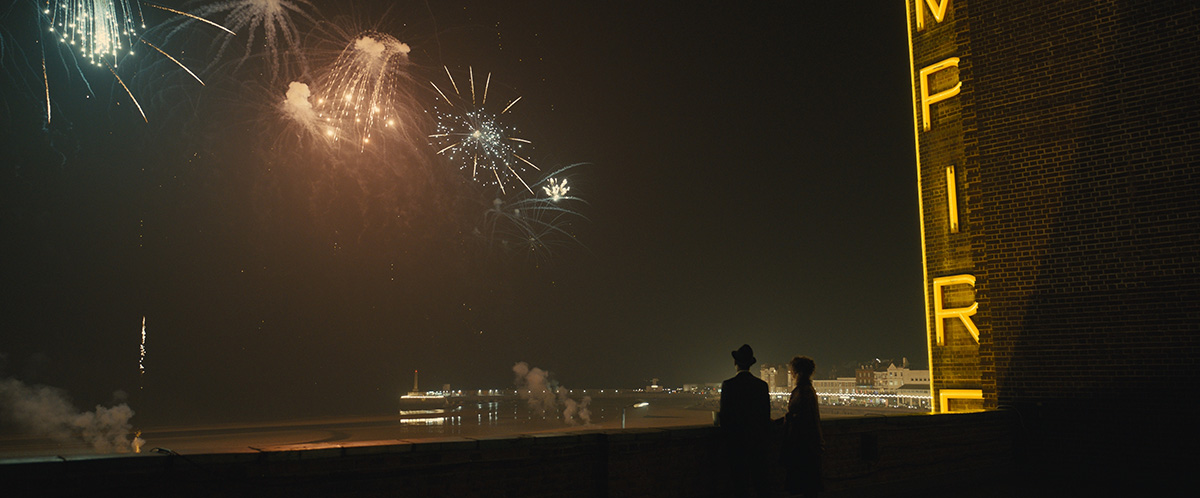
*** SPOILER ALERT ***
A lot of that was the sound work we were doing. Prior to getting the final score I was using a lot of temp and drones and things trying to find the sweet spot to make the shift between “what is it that we are looking at?” At the first part — for a moment— it's not threatening. It's a whole ton of guys, mods on motorcycles just blowing by the cinema. It’s a spectacle.
The shift is as you just start to hear the skinhead rant and the racist rants then you see the beautiful way that all of their faces drop (in the cinema) when they realize that the whole procession has been infiltrated by racists and skinheads. And then the music, the sound, everything swings in this giant arc to turn into what it eventually is which is the skinheads going mad, destroying everything in their path.
And then, of course, recognizing Stephen from their earlier confrontation with him. So, a lot of that was just soundscape, just twisting that envelope and then you hear just enough to watch their expressions change and then building it to the hammering on the doors and all of that stuff.
And then playing that on the inside of, quite specifically, from Hillary and Stephen's point of view she's just watching him deal with. And then dropping the sound down as he's attacked.
The goal was to keep it looking - I don't wanna say this in a derogatory way - but not in that Hollywood sense where you could have made that a very heavily cut action sequence.
We said early on that the film stands on its reality, so the scene has to look scrappy and not organized. Nobody's doing anything in particular. You are just witnessing what happens. A wave of guys comes in. Unfortunately, Stephen is on the receiving end of the brutality and then they disappear. And that's just how it happens. And, I think that's what got captured at that moment.
*** END SPOILER ALERT ***
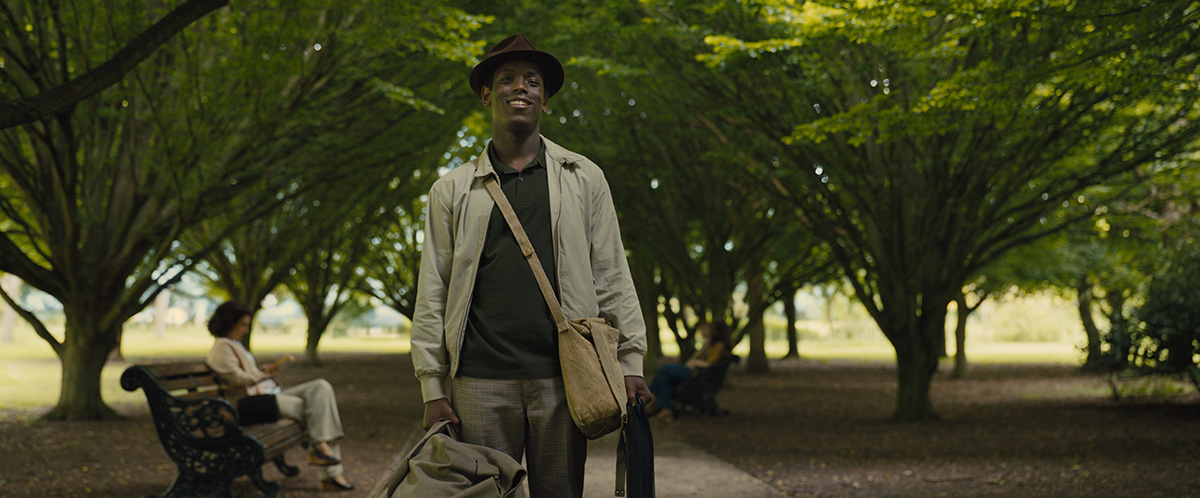
That was shot pretty early on. Then some shots were added and taken away from it as we saw it develop. Sam always wanted that scene done to set the tone for the rest of the movie. He was very keen to see that montage come together. That was completed within the first two or three weeks of shooting, I'd already put credits and music, and everything on it to try and give us the whole vibe of how that works.
Temp music?It was some music that Sam had written into the script that spoke to Sam. We used it for a very long time. We considered it would never be replaced. Again, once we got the score going, Atticus and Trent saw that as something that they should attempt.
I think it was a very difficult thing to swap out. It took a few iterations, and then we all just said, "Yeah, they nailed it." Now it's better because the other temp music was carrying a historical vibe that you would've had to have used two or three times in the movie to make it make sense. By the end of it, as we were swapping out temp for the score, we realized that we couldn't just have this music that Sam was very attached to play once. It wouldn't make sense. We learned to love it very quickly.
And time-wise, because it was a credit sequence, it had to go for a certain length, or...Yeah. I mean, it wasn't a huge amount left out. And it didn't change much from the first time I put it together because it just had this natural, wonderful rhythm to it. We monkeyed with it a few times, but not much.
We had this weird thing that it almost fell perfectly in sync with the lights turning on in the original piece. Then I manipulated it to fall right on. Because it started so close, it was uncanny. I just put the track on and I was watching it thinking, "Man, how often does that happen?" It was like all the lights were coming on within frames of being in sync.
When Trent and Atticus did the score, they did something like it. Again, it was close to what I wanted and then we just manipulated it so it was back in again. I remember a lot of people commenting on how weird that was. I said, "You have no idea how weird that was!"
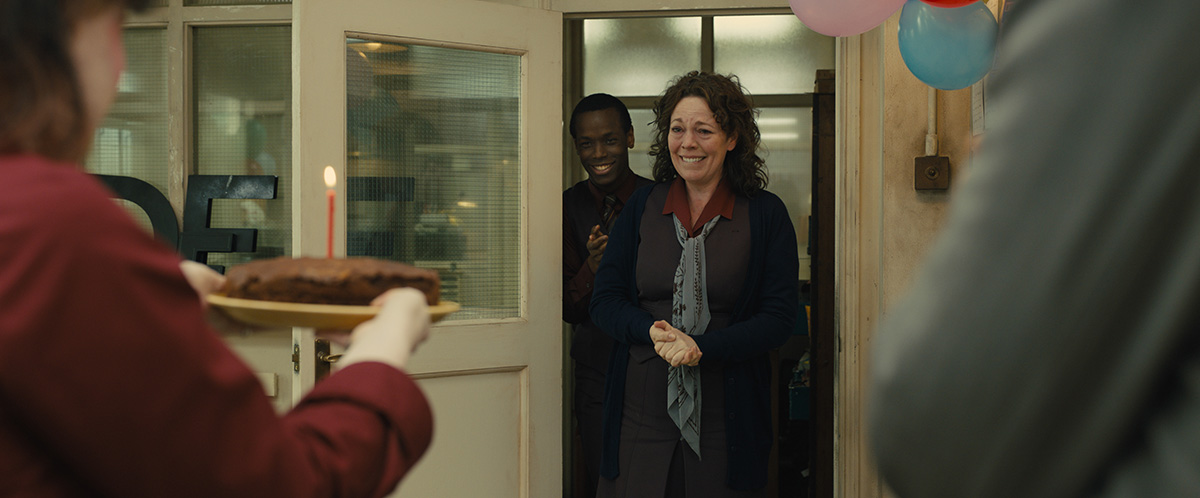
It just happened that way. It was so close that I thought, “Okay, in for a penny, in for a pound, I'll make it happen.”
I don't remember if it was you or another editor who told me that you cut a scene together and then handed it off to the composer and the composer said, “You were cutting it at 97 beats per minute, and I didn't have to do anything."That could have been me. It was Zimmer.
Yeah, Hans Zimmer.Zimmer always used to say, “I don't know how you do it. You cut like music.” I said, “I'm telling you, Hans, I can't play a musical instrument to save my life." And he said, “I don't know what happens, the music just syncs up.”
There is definitely a rhythm in my head. I don't know where it comes from. I don't know how to describe it, but something will either feel a little short or a little long and I'll adjust it. That seems to be sympathetic to Hans' music. I've done so many films with his scores or his protege's scores that I think inherently now he's infected me. (laughing)
(Laughing) I wanted you to talk about the other montage, which I'm sure you can guess is at the end of the film in the projector booth.There's such a lovely sense between that scene — and also the scene where he's talking to Stephen in the projection booth is another one — where I just sense a tremendous love of the cinema.
Mr. Mendez said to me when I put those scenes together, “Boy, you can tell that you love this stuff." I said, “Yeah.” I had learned to run projectors. That was about my second job. I can thread projectors. I can thread flatbeds. I can thread Moviolas. I just found it very emotional. All of those scenes — especially with Toby — everything he put into those scenes was so brilliant; and Stephen's wonderment.
I remember that same vibe of looking through a porthole and watching the crew, for example, if I was projecting dailies. I'd be peering down at the crew wondering what they're thinking and focusing on. Everything about it was second nature and I loved it so much. I also corrected a few of the lacing things that weren't quite right…
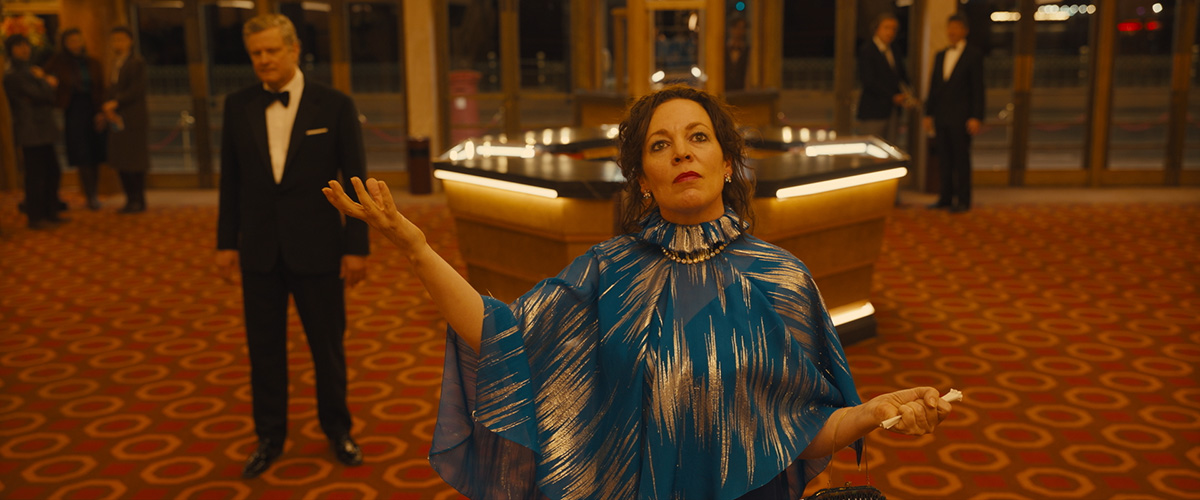
But I fixed it very easily. It was beautiful to do. Projectionists were quirky. All full of interesting oddities and things that they find fascinating, and Toby embodied that.
The thing at the end, it was all about Hillary's experience of watching a film for the first time. But in the end, it was not just Hillary's experience. It was Hillary being watched by someone caring about her learning about it for the first time, and who loves films.
That was a revelation because that was not part of the deal. That was supposed to be just her, but being able to use Toby peering through the porthole at her little solo head makes me think of all the films where I've been the only one in a cinema because I'm editing a film and we're running it for some reason. You have this odd feeling that the whole room is yours and you are just sitting there watching it. She was experiencing that and it's kind of thrilling and the audience loved it. That was the other thing in the focus group: they kept pulling out those scenes and talking about Norman talking to Stephen and Stephen saying, "Wow," when he's explaining to him about all the belts and says, "the audience should know what goes on out here." Stephen is just all wide-eyed looking at it. The screening audience was picking up on those scenes and just saying how lovely they were and how much they enjoyed them. I just thought, “Yeah, I guess emotion transcends whether you know anything about the topic.”
Last question for you. At one point, Olivia's character leaves the movie for a brief bit. Is there a clock ticking for you about how long you can be away from her story arc?Totally. That was a source of great fear for us. Having our central character depart the movie was always a concern and a worry. Even at the script stage, we talked about how long could we be away from her.
When it came right down to it — because the other characters were so strong — I think it helped us immensely, at that moment. Again, with test screenings and friends and family, you realize it was never a problem. It's happened to me on other films where we've lost central characters for like 10 minutes and we thought, "Oh my God! This is death.” But that's because the supporting storylines are just not strong enough. Whereas this one, it was all on Stephen's shoulders and he wore it. When she comes back, it feels like she wasn't gone for long and that's what we wanted. She hasn't departed the movie, and it was such a flamboyant reentry.
Lee, thank you so much for your wisdom and for taking the time to talk to us.Love chatting with you. Thanks, Steve.

